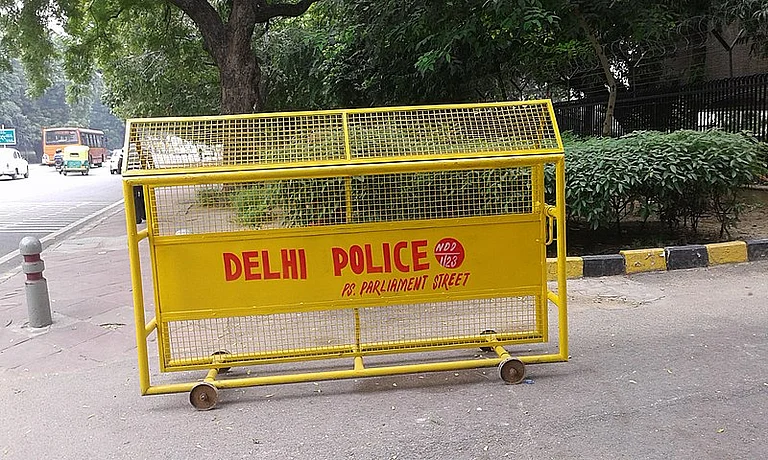
The Age Of Pox Brittania
It wasn’t quite Delhi circa 1984 or Bombay circa 1992, but for a few August days, fear and loathing stalked the London streets. As apocalyptic images of the British capital burning were beamed live across the world, it seemed the city had turned on itself. Now that the unprecedented spree of rioting and looting has finally stopped, the soul-searching has begun.
The looters, mostly unemployed and unschooled young adults, weren’t protesting for or against anything in particular. All they wanted was a nice pair of shoes or a new flat-screen TV without the bother of having to pay for it.
More than the rioting, it is the apparent depravity of the rioters that has shocked the chattering classes. The glimpses of dystopia prompted British Prime Minister David Cameron to declare parts of his country “sick”. But, as usual, glib soundbites do not the full story tell.
In better times, Britain’s culture of market-led individualism and its generous welfare state were upheld as exemplars of compassionate capitalism. With the economy at a standstill, that grand social contract has become frayed. The lavishly paid investment bankers in the Square Mile, London’s financial district, and the rioters next door in Hackney—one of Europe’s most impoverished quarters—may live cheek by jowl, but they have little in common besides their fondness for the same toys. The rioters and the bankers, those villains-in-chief of the financial misadventures that have left Britain under a mountain of debt, are devotees of the same brand of mobile phone. Why? The phone’s tamper-proof and lightning quick messaging service makes it an indispensible tool of the trade for both.
That Slow Fade Into The Sunset
Till the uproar over phone hacking by its journalists forced the News of the World—Britain’s best-selling Sunday newspaper—to abruptly close shop, it was said that Rupert Murdoch, the paper’s octogenarian proprietor, was the most powerful man in British politics. Though he lives in New York and runs a global media empire in which India now plays a big part, Murdoch’s ownership of some of Britain’s most influential and widely read newspapers made him a figure no ambitious British politician could afford to ignore. That might be about to change as the stink from the scandal threatens to leave no pillar of the establishment untouched. A newspaper’s relationship with politicians, goes an old dictum, should be like the one a dog has with lamp-posts. But it’s not always the case in Britain.
Unlike most major Indian newspapers in India, those in Britain make no bones about where their political sympathies lie. Before every election, the main papers will urge their readers to vote for one party or the other, thus making it mandatory for party leaders to woo the papers and their owners to win their endorsement. With newspaper sales in permanent decline in Britain and media bosses now becoming more business-like than ever, Murdoch may well be the last of the larger-than-life media moguls.
Murdoch revolutionised British newspapers but is also blamed for much of the industry’s current woes. His mixed legacy has been summed up by former rival Conrad Black, in jail for fraud. Borrowing a phrase used to describe Napoleon, Black says Murdoch is a “great bad man”.
Harsha’s Cheshire Doppelganger
Watching India’s summer Test series against England has been excruciating. Luckily, listening to the radio commentary of the matches has turned out to be a pleasure. The longueurs of Test cricket make it particularly suited for radio. The eclectic and eccentric galaxy of guests on BBC’s Test Match Special who ruminate on everything but the match at hand somehow makes the Indian team’s woes on the field seem less embarrassing.
To make a crude comparison, Jonathan Agnew is to cricket on radio in England what Harsha Bhogle is to televised cricket in India. He might have had the briefest of careers as an England cricketer but as a radio commentator, he has become a national institution, recognised simply as Aggers. During breaks for lunch, tea and rain interruptions, he interviews cricketers past and present as well as prime ministers, bishops, rock stars and CEOs, all of whom happen to have one thing in common: an inexplicable obsession with Test cricket. With his impeccable bedside manners, Aggers coaxes and cajoles the cagiest of guests into baring their souls on air.
The Fine Art Of Pastry Slapstick
When the cricket is on, Agnew adroitly gets the best out of a motley crew of commentators, full of giant egos and loud mouths. Every now and then, he even manages to make Ravi Shastri sound amusing. While Aggers always speaks in measured tones, his sidekick Phil Tufnell, another former England international, keeps the jokes coming thick and fast. But none dare get in the way of crusty old pros like Sir Geoff Boycott. Fed up with India’s capitulation in yet another Test, one of Boycott’s contemporaries could not help but add stinging insult to India’s injury: the pace bowling attack, he said, was as intimidating as a pudding.
























